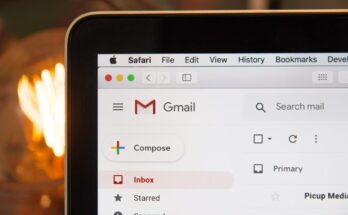People lose their jobs, have health problems, go traveling, or simply decide to quit. Gaps in your employment history are nothing to be ashamed of. At the same time, if you go a long period without working, it’s only natural employers will want to know the reasons.
With the right mind and the actionable tips and advice included in this article, you can transform what might initially seem like a setback into a competitive advantage in the job market.
You’re going to learn how to create a strategic approach that addresses gaps in each part of the application process.
From adopting the right resume format to avoid highlighting them, to using a resume builder to create a professional first impression, or to rehearsing difficult questions to be relaxed during the interview.
Let’s dive in!
Should You Mention Employment Gaps on Your Resume or Cover Letter?
It’s worth considering whether you need to include the gap on your resume or cover letter. You’re not obliged to include your entire employment history.
If you’ve been working for over a decade there’s no need to include a pause in your work history from more than 10-15 years ago. This means that if the gap was long enough ago there’s no need to mention it.
If the gap was in the last 5 years it is more difficult to conceal, so you should mention any recent hiatus. The last thing you want to do is lie to a potential employer.
It will probably come back to bite you, considering research from CareerBuilder found that 75% of recruiters claim to have spotted a lie on a resume.
However, short gaps, typically less than three months, may not be worth including in your resume or cover letter for a few reasons.
Let’s explore why this might be the case:
- Keeps focus on the positives: Including short gaps could divert attention away from your achievements and take up valuable space that could be used to feature your qualifications.
- They’re common place in modern job markets: In today’s fast-paced job market, short employment gaps are increasingly common. Employers understand that candidates may experience brief periods of unemployment or job transitions. As a result, they may not view such gaps as significant or worth explaining.
- Brief gaps are often self-explanatory: Short hiatuses are often due to temporary circumstances, such as personal or family-related issues, short-term projects, or other life events. In most cases, employers can deduce these reasons without further explanation and are unlikely to view them as problematic.
- Reduces clutter and maintains readability: By omitting short gaps, you can keep your documents focused and easy to read, allowing employers to quickly assess your suitability for the position.
- Preserves professionalism and relevance: Since short gaps are often not pertinent to your qualifications, including them could detract from the overall professionalism of your resume or cover letter.
Reframing Career Pauses: Valid Reasons Behind Employment Gaps
There are numerous reasons for gaps, many of which can be framed positively to demonstrate your growth and adaptability.
When addressing these reasons, it’s important to focus on the skills, experiences, and personal growth you gained during this time.
By framing them positively, you can effectively demonstrate your adaptability, resilience, and commitment to professional development.
Look over the list below to understand what specific points to address when mentioning your professional hiatus if you were out of work for any of the following reasons.
- Further education or professional development: Mention you were committed to learning and personal growth by attending courses and certificate programs during your employment gap.
- Volunteering or community involvement: Engaging in volunteer work or community projects demonstrates your dedication to social responsibility, teamwork, and leadership – all valuable qualities that employers often seek in candidates.
- Parental or family leave: Taking time off to care for a newborn, children, or family members shows a strong sense of responsibility and work-life balance, which can be an asset in the workplace.
- Travel or cultural experiences: Traveling or immersing yourself in other cultures can enhance your adaptability, communication, and problem-solving skills, making you a more well-rounded candidate.
- Starting or managing a business: Entrepreneurial ventures, even if short-lived or unsuccessful, can provide valuable insights into business management, strategic planning, and leadership.
- Freelancing or consulting: Working as a freelancer or consultant during an employment gap highlights your ability to adapt to different work environments, manage multiple projects, and maintain a strong professional network.
- Health or personal reasons: Taking time off to address health or personal issues can demonstrate resilience and self-awareness, two important qualities for maintaining a healthy work-life balance.
- Being laid off or fired: If you were laid off, focus on how you used the opportunity to expand your skill set, network with other professionals, or take on personal projects. If you were fired, be honest about the situation, but also highlight any lessons learned or abilities gained from the experience.
Ways to Address Gaps in Your Resume
It’s not always how you say it, it’s what you say. It’s critical to understand how to write a resume correctly and take emphasis away from the gaps.
To make the gaps seem less important you can use the following techniques on your resume.
Be Enthusiastic
To show your enthusiasm for a job, it’s essential to do your research on the company, customize your application, use positive language, and demonstrate your motivation.
Be specific about what motivates you and explain why you are passionate about the work in the resume objective or summary statement.
Discuss the company’s mission and values, show your excitement for the job, and explain how the job fits into your long-term career goals.
Look at the example below for reference:
Detail-oriented and meticulous Laboratory Assistant seeking to re-enter the workforce after a family caregiving gap. During this time, I sharpened my problem-solving and interpersonal skills, while actively engaging in online courses related to laboratory safety protocols. Eager to apply these enhanced capabilities in a Laboratory Assistant role, contributing to the success of [Company name].
Only Use Years as the Dates
By not including months when listing dates on your resume you can close small gaps. Employers may not ask you for more specific dates but be ready if they do and be honest.
Change the Resume Format
There are also resume formats that draw less attention to resume gaps. Using a format that focuses on your skills over experience would be the better choice.
Since you don’t want hiring managers to pay too much attention to your gap, a functional format is better suited to emphasize your skill set.
Examples of How to Write a Resume With Employment Gaps
You may have been laid off, travel, or simply decided to take a course, whatever the reason, you’ll need to make your time between jobs look productive.
These examples demonstrate different approaches that you can take in writing a resume with an employment gap, depending on your specific situation.
Use them as a guide to craft your own resume with confidence.
Travel Experience | 2019
- Traveled extensively throughout Europe, Asia, and South America
- Developed cultural awareness and adaptability through exposure to diverse customs, languages, and social norms
- Enhanced problem-solving and communication skills by navigating unfamiliar territories and interacting with people from different backgrounds
Full-time caregiver | 2014 – 2015
Provided full-time care for a family member and volunteered for a local non-profit organization
Strengthened time management and organizational skills by effectively balancing caregiving duties with personal responsibilities
How to Include Employment Gaps in Your Cover Letter
When recruiters see gaps in an application, they may have several concerns.
For example, is the candidate up-to-date with the latest technological advances? Or how will the applicant handle a large workload? Will they be able to adapt?
There are effective ways to address such concerns and turn the situation to your advantage:
- Show your commitment to continuous education: Mention any courses you took to your qualification and knowledge of the industry during your hiatus, as it highlights a proactive approach to self-improvement and a dedication to developing new skills.
- Feature your ability to adapt: If you spent time traveling, you’ve demonstrated an ability to adapt to new environments and a passion for exploring. Make sure you point it out in your cover letter! It features your willingness to step out of your comfort zone and explore new opportunities.
- Highlight the values and skills you’ve gained: Taking care of a family member and volunteering are excellent opportunities to develop transferable skills, such as time management and problem-solving. They also showcase responsibility, and empathy, qualities that employers often highly value in candidates. Emphasize it!
Ultimately, your ability to present these experiences positively and confidently will help you stand out as a versatile and adaptable candidate, prepared to contribute meaningfully to your future employer’s success.
Sample Cover Letter for Gap in Employment
This section provides a sample cover letter explaining a gap in employment that demonstrates how to address it in a positive and professional manner.
Create your own cover letter that reflects your specific situation using this sample as a guide.
Hiring Manager’s name
Company name
Company address
Date
Dear [Hiring Manager Name],
I am excited to apply for the teaching position at [school]. I have over ten years of experience in teaching students of various age groups and backgrounds, including supervising student activities, managing classrooms, and overseeing curriculums.
As you will see on my resume, I took a one-year sabbatical to travel and volunteer in different countries. Although it was a challenging decision to take a break from my teaching career, it was also an opportunity to develop important abilities in adaptability, cultural sensitivity, and communication. These skills have given me a renewed focus on the importance of creating a positive and inclusive classroom environment and have helped me develop a student-centered teaching style.
During my sabbatical, I made it a priority to stay up-to-date with the latest teaching methodologies, technologies, and regulations relevant to education. I took online courses, attended workshops, and read industry publications to keep my knowledge and qualifications current.
I am excited to bring these abilities to your school and am confident that I can excel in the teaching role. I am well-versed in using modern teaching tools and techniques, and have experience in creating and implementing lesson plans that cater to the needs of individual students.
Thank you for considering my application. I would be thrilled to meet with you to discuss how I can contribute to your school’s success and support students in reaching their full potential.
Sincerely,
Name
Address
Phone number
Email address
Our cover letter writing guide can make the process easier for you. Take a look and create your letter with confidence and ease.
How to Justify Gaps in an Interview
Explaining gaps in employment can be tricky. As a UCLA study shows, unemployment bias is quite real in the world of recruitment.
However, with the right approach and preparation, you can give a confident, honest answer which will convince the interviewer. Here are some tips to help you prepare:
Be Prepared
If you haven’t prepared an answer it will be immediately obvious to the interviewer. Stuttering and stammering, while you rack your brains for an answer, is exactly what you want to avoid.
This gives the impression that you’re hiding something or, at best, that you’re badly prepared for the interview. Anticipating the interview questions, and preparing answers is key to a successful interview.
Be Confident
Practice answering questions about why you’ve got a gap on your resume. Ask a friend or family member to give you a mock interview. Remember that gaps in employment happen. Life happens. There’s no reason to feel embarrassed about the gaps so confidently explain why they’re there.
Be Positive
Always talk enthusiastically about past positions. If you left a job, avoid criticizing past colleagues or bosses as this can give the impression that you’re difficult to work with. Similarly, when talking about the gap in your resume, focus on the constructive aspects.
Focus on any projects, freelance work, traveling, or hobbies you’ve spent time on. Employers want positive workers. If you can avoid negativity during difficult questions it will give a fantastic impression.
Be Brief
While it’s important to explain your career gap, you don’t focus too much on it. A brief explanation respects the employer’s time and allows you to address the most important information.
By getting straight to the point and highlighting the skills and experiences gained during your career gap, you can show the employer why you are a valuable candidate.
Final Word
Explaining gaps in your employment history can be a challenging aspect of the job application process, but with the right approach, it’s possible to turn it into a positive.
Remember to be honest, concise, and positive in your explanation, and use your cover letter and resume to showcase your strengths and qualifications for the job.
You’ll also need to be confident and avoid being negative during your interview.
If you struggle with nerves during the job interview, there are techniques you can use to calm your nerves and stay in control when meeting with the hiring manager.
By being proactive and strategic in your approach, you can successfully navigate any gaps in your employment history and land the job you’re looking for.
Good luck!




